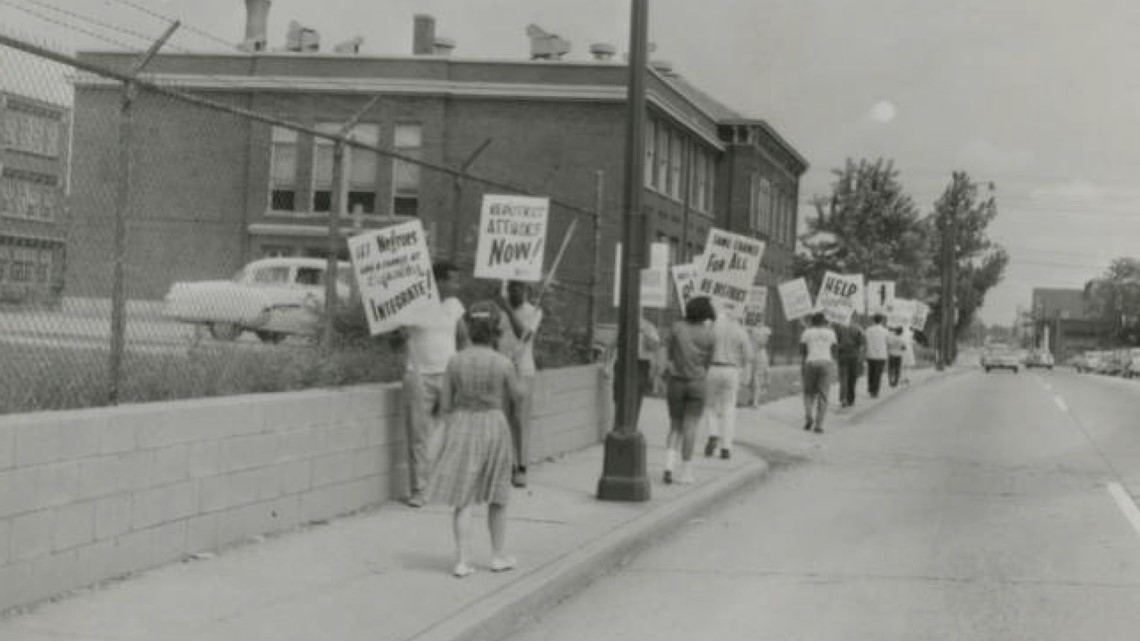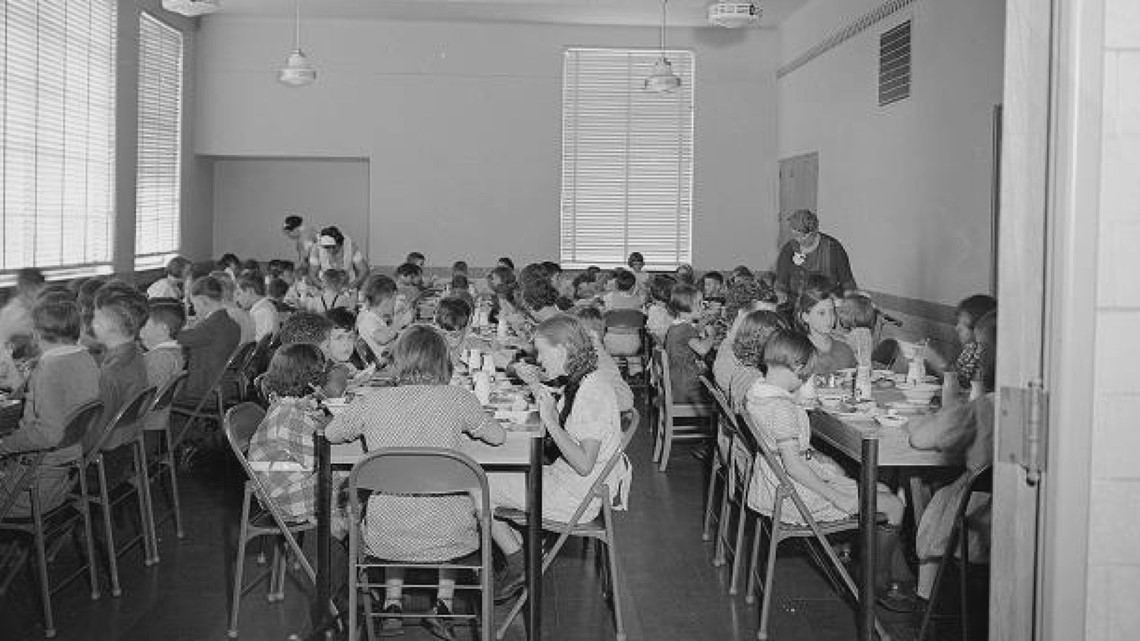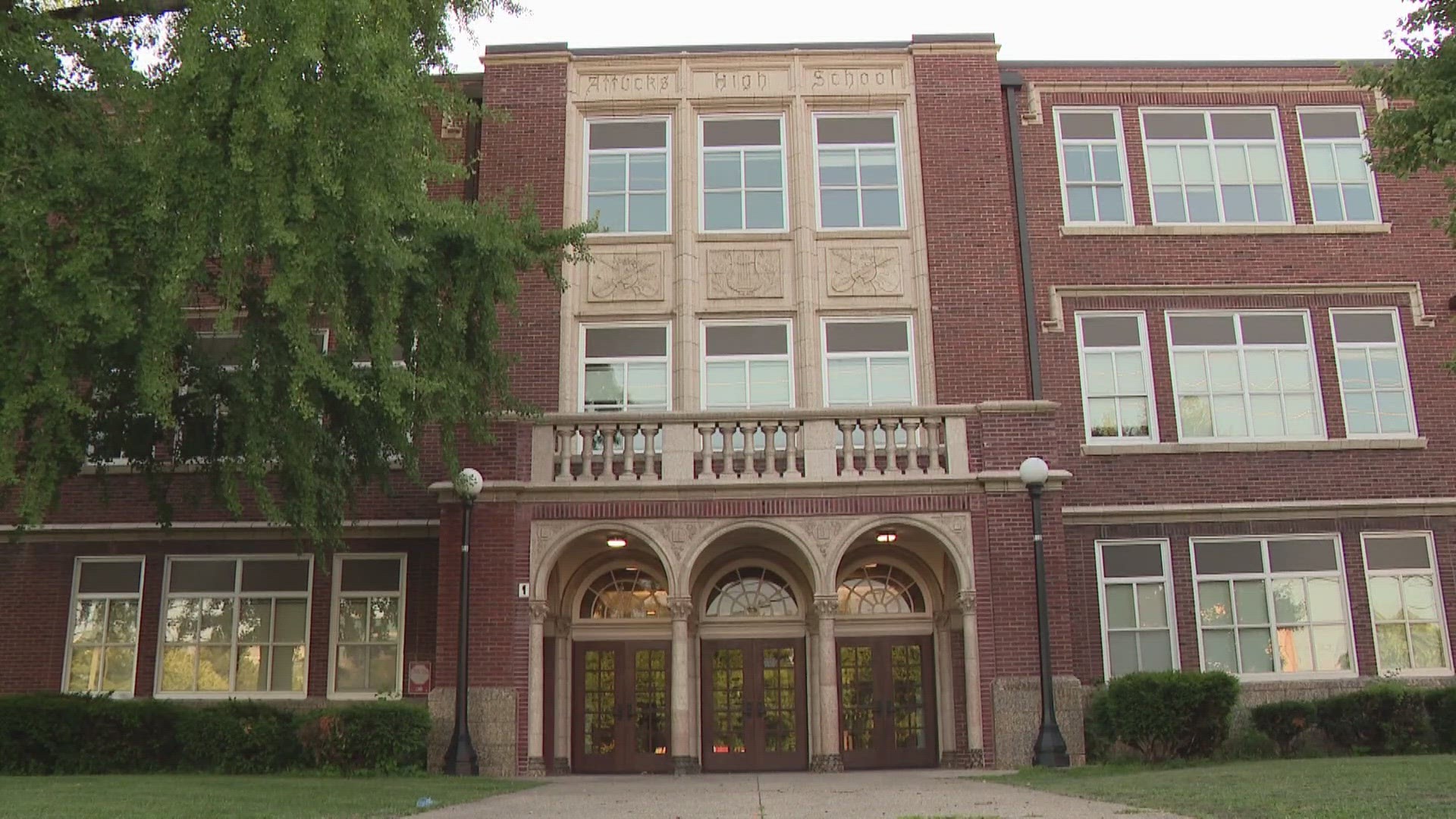INDIANAPOLIS — Students in central Indiana will head back to school in a few weeks.
Over the past year, Indianapolis Public Schools has been tackling long-lasting inequities in the district, set to continue implementation of its Rebuilding Stronger Plan in the upcoming school year. It's a multi-year plan designed to make sure all IPS students can access a good education, regardless of their background or where they live.
The issues Rebuilding Stronger aim to overcome aren't new for IPS. District leaders say they started decades earlier with the forced integration of schools.
"We cannot accept what has been, but we have to keep pushing for what we know is possible," IPS Superintendent Dr. Aleesia Johnson said.
In its 170 years, IPS has educated thousands of students through sweeping changes in the country, from the Civil War to Reconstruction and desegregating its schools.


Not every change has come easily for the district.
"IPS has been a part of my life for most of my life, almost. Yeah, for most of my life," said Dr. Patricia Payne, racial equity office director for IPS.
Growing up, Payne was an IPS student. After graduating from Indiana University, Payne returned to teach.
"School 21 over on 21st and College," Payne said. "And of course at that time, Black teachers taught Black students, and white teachers taught white students. That's where my profession with IPS started."
That was in 1962, years after the Supreme Court's landmark 1954 Brown vs. Board of Education decision that ordered schools to desegregate nationwide.
But many districts dragged their feet, including IPS. In 1968, the U.S. Department of Justice sued to force Indianapolis to desegregate.


IPS responded by starting a minimal busing program in 1970. But it wasn't enough and, in 1971, IPS was found guilty of segregating its school system.
Finally, in 1973, nearly 20 years after the Brown ruling, the federal courts mandated IPS desegregate. They issued an order, directing IPS transfer students to township schools for the 1975 school year.
For many, the transition was tough.
"It was horrible. It was horrible because it was one-way busing, and they, our students, were not wanted out in the township schools. Teachers did not know how to teach our children, and so it was like they were aliens out there," Payne said.
Payne said that's when IPS moved her and other Black teachers to teach white students. She went to School 61.
"And I'll never forget it because white parents were pacing the hall, looking in to see if we were doing what they felt was right with their precious white students," Payne said. "And of course, I just invited them right into the classroom."
Issues with segregation didn't fade immediately. One-way busing remained in place for 25 years to ensure desegregation continued.
"We rode the bus," said Trina Terrell, a 1985 graduate of Warren Central High School. "Long ride."
Flipping through her high school yearbook, Terrell thinks back on her time at Warren Central.
"Warren was beating up on everybody in football," Terrell said.
More than 30 years after graduating, she's still in touch with many of her classmates.
Terrell was part of the first bused class to graduate Warren Central. At the time, Terrell said there weren't many Black students attending Warren Central.
"No," Terrell said. "Us. Those that were bused. A lot of my classes, I was the only Black student in the class. Several of them."
Problems at her school, she said, weren't constant but still present.
"Especially when it came to sports. I even experienced an issue running track," Terrell said.
Running indoors, Terrell remembers when a white student ran past.
"I was bumped by one, we were running in opposite directions and pushed and said, 'You need to go this way.' Well, I didn't because the rest of us were running the other way," Terrell said. "When I brought it to the coach, she just simply brushed it off as, 'Now, just bear with them, they're not really used to you all being out here.' Whatever that meant."
Her brother, too, faced issues on the football field, especially when playing other teams.
That animosity over desegregating schools has left lingering issues in the schools and throughout the community. Johnson said that was made clear when families moved their kids out of IPS in droves after desegregation began.
"So, when you think about the impact of a one-way busing order — and let's be clear: the Indianapolis Public Schools school board was absolutely acting in racist ways, so let's be clear about that — but that order led to 64,000 students between 1973 and 1998 that left this district," Johnson said.
With thousands of students leaving the district and challenges throughout IPS as they worked to desegregate, many issues have remained present in the district even to this day.
"What actually really bothers me, looking back on it, is that some of the same things are still going on. I mean, we need to come up with the time," Terrell said. "It shouldn't be like that."
"These were intentional policy decisions that our district still feels the implications of today," Johnson said.
"It's been very hard for us to recover from that," Payne said.
Addressing where IPS students are educated and what kind of an education and environment they receive are chief among the concerns Rebuilding Stronger aims to tackle, Johnson said.
"We saw disparities between the experiences that students got to get. Oftentimes, our white students had access to things like algebra in their middle school, foreign language, art and music in their schools. Our Black and Brown students who disproportionately attend our neighborhood schools did not have that same access to programming," Johnson said.
For the past year, Johnson and her team have been working to remove those racial disparities.
The district's plan would ensure all students have a more equal IPS experience by removing geographic barriers to the best schools by establishing enrollment zones, where parents can pick where students attend, as well as stepping up extracurricular and class options in many schools to ensure all kids can play in the band or take algebra.
These changes are already giving many families across the district hope.
"And now my granddaughter, whichever school she goes to, I want hers to be a better experience as well," Terrell said.
In May, voters approved a $410 million referendum to help pay for these changes and facility improvements.
It won't eliminate the decades of racism or years of inequity across IPS, Johnson said, but it's a needed step in the right direction for Indianapolis kids.
"It won't happen tomorrow," Johnson said. "But we're going to urgently work every single day to make true what we know can be."

